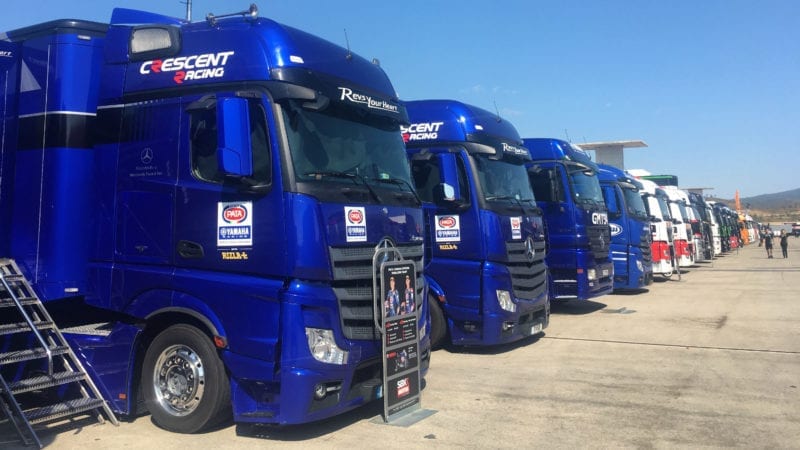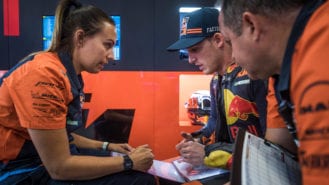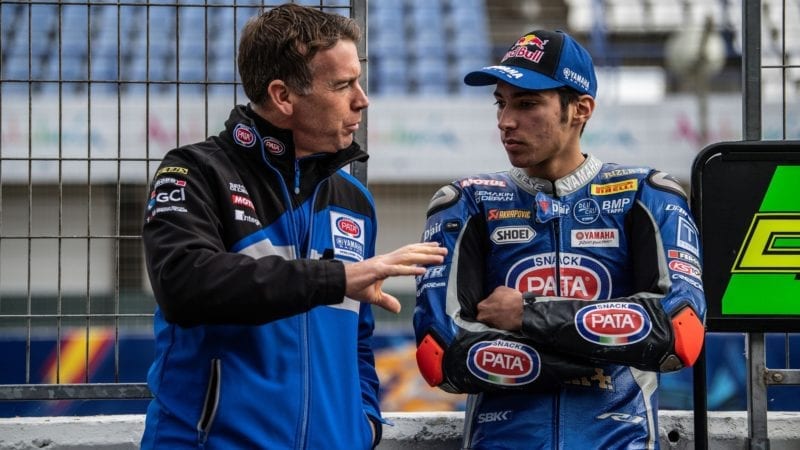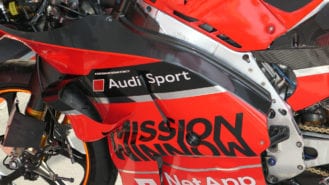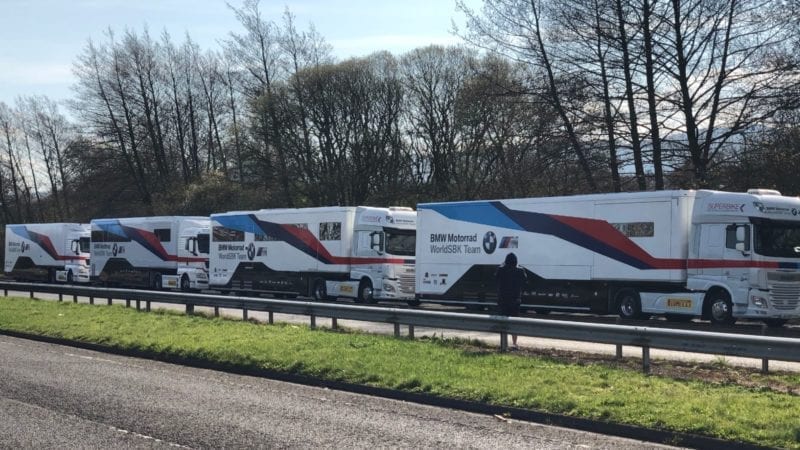Carnets allow for the temporary importation of goods into countries by guaranteeing that you won’t sell the goods while you’re there. A truck carnet must include every single item in the truck, from bikes and tyres to spare engines and paddock scooters, plus lists of individual tools and parts, nuts and bolts and so on.
Smaller teams and hobby racers taking bikes into Europe also need carnets. Road-registered bikes are exempt, but any van carrying multiple machines (for track-day events, for example) will be considered a commercial venture, so a carnet will be required.
Basic cost of a carnet is around £300, plus a refundable deposit of 40 per cent of the value of the van/truck and everything inside it, or a non-refundable insurance premium to cover the 40 per cent. Muir puts the cost of an annual EU carnet for a race truck at between £4000 and £5000. He takes four trucks onto the Continent, Crescent takes two.
Carnets are valid for 12 months and multiple trips, so long as the items listed don’t change significantly. For example, you will need a new carnet if the motorcycles in the consignment change or if the number of tyres in the consignment changes.
Exactly the same requirements will apply to riders and teams coming into the UK.
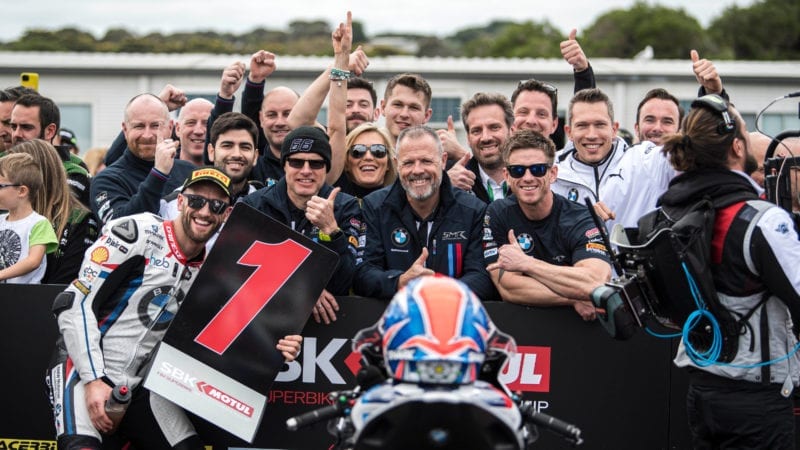
BMW celebrating at Phillip Island. Muir is centre, immediately in front of Syke’s S1000RR
BMW Motorrad
“Carnet fees and agency fees are quite painful,” says Paul Denning, boss of Crescent, which runs the Pata Yamaha operation with riders Toprak Razgatlıoğlu and Andrea Locatelli. “We are a well-established team and company so we can put time, money and human resources into doing that. Does all this make it unattractive for smaller teams running out of the UK on shoestring budgets in World Supersport 300 or 600? Yes. Does it make it impossible? Maybe. Either way it’s a massive pain.
“There’s not only a cost implication, there’s also a lot of hassle, because you need to make sure that every tyre, every item of rider clothing, every single bike component that goes out of the UK comes back in. Then there’s the uncertainty of getting where you want to be on time, because there’s always the chance you’ll get some jobsworth at customs who chooses to empty your 40-foot track full of factory bikes and wants to empty out your toolboxes to count the number of long-reach 14mm spanners you’ve got onboard.
“We’re told the estimate for an Italian work visa is anywhere between £1500 and £3000 per person. And that’s just one country”
“At the moment the people working in our office are fully focused on this, almost 24/7. Of course, it helps who you work with – we use DFDS ferries and they’ve been super-helpful with paperwork and documentation.”
Denning is working alongside UK-based Formula 1 car teams who are going through the same processes, on a much larger scale. Some F1 teams have already sent vans and trucks into the EU to detect potential problems before the racing season starts. Some of these vehicles have spent a day or two waiting to cross the channel. SMR has done its own experiments.
